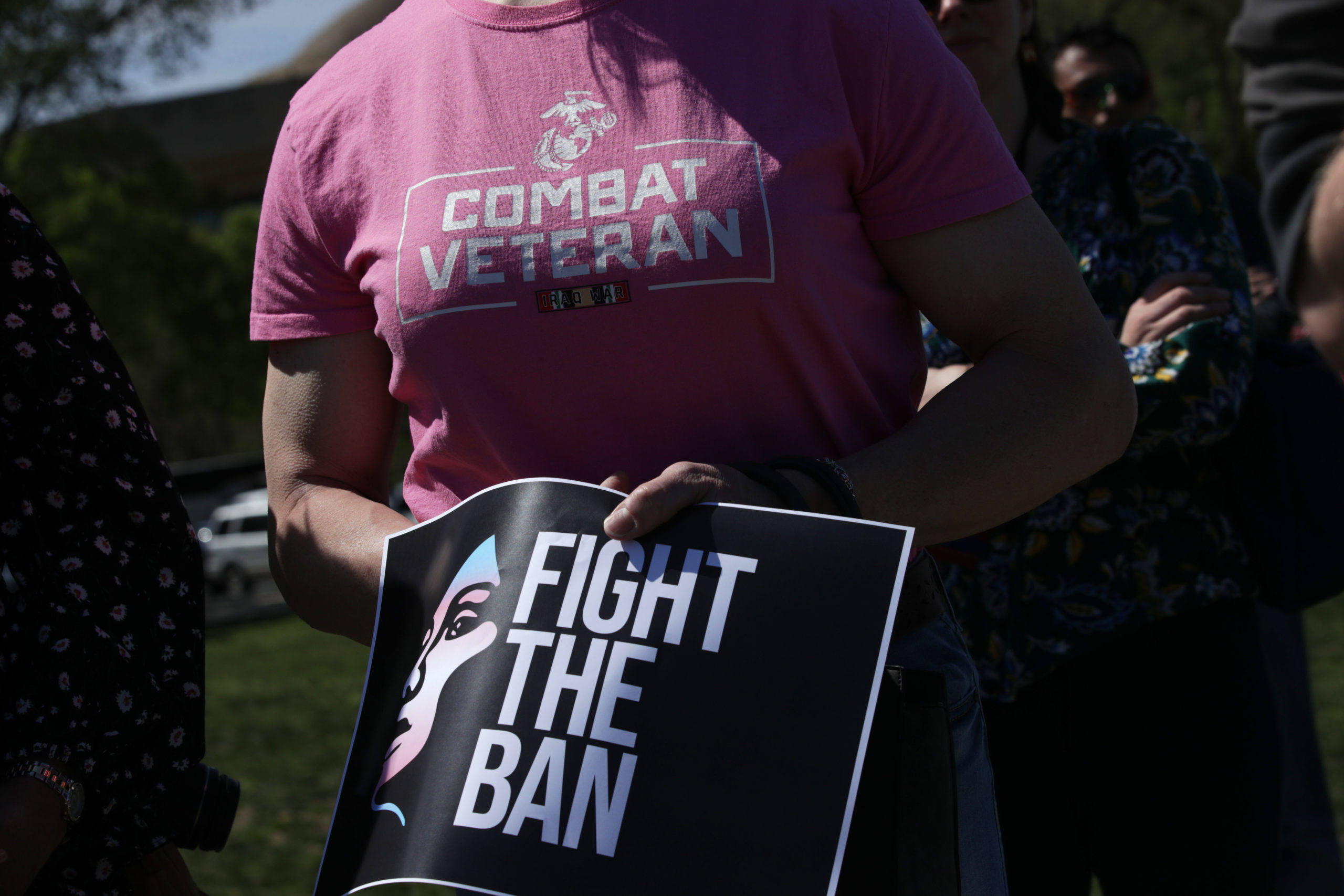Democratic lawmakers joined activists to rally against the transgender military service ban. (Alex Wong/Getty Images)
Democrats in the House of Representatives quietly dealt a devastating blow to US president Donald Trump’s trans military ban on Thursday (July 30).
A measure pitched by California representative Jacki Speier and sponsored by a bloc of 28 fellow Democrats barred the use of Pentagon funds to implement the policy, which went into effect April 2019.
Lawmakers added the amendment as part of a package of reforms to a six-bill, $1.3 trillion spending measure, Politico reported.
While no lawmakers during the voice vote spoke for or against it, the tweak will no doubt serve as a symbolic broadside against the administration, coming only weeks after justices extinguished Trump’s attempt to roll back employment protections for LGBT+ people.
Democrats, as well as activists, have sought to stymie the policy since Trump abruptly floated the idea in 2017 on Twitter. Opponents of the measure were quick to compare it to the debased “don’t ask, don’t tell” guidelines that stonewalled LGBT+ people openly serving in the military.
Palm Center, a research institute that examines public policy, welcomed the move by the House.
“The Department of Defense should not be spending taxpayer money on a politically motivated policy that keeps qualified people out of the military, particularly when the military continues to face enlistment shortfalls,” director Aaron Belkin said in a news release.
What is the trans troops ban?
In 2019, after months of litigation and controversy over the issue, the Defense Department levelled a policy that, to this day, nobody can figure out was even needed.
The ban forces trans people to disavow their gender identity in order to serve. Trans troops would therefore not be able to use the uniforms, sleeping and bathroom facilities or pronouns of their gender identity.
Pentagon officials were at pains to stress that the policy does not discriminate or exclude based on gender identity. They noted that waivers can be granted.
But in a report to Congress in June, the military said only a single waiver to allow a trans person to serve had been granted. Just two were in consideration, and 19 people were medically disqualified from enlisting or commissioning as an officer because of the ban,
As much as activists have pleaded for government officials to curtail the ban, the Department of Defense have not budged. “The Department is not considering adjusting existing policy,” the bureau said in April.
